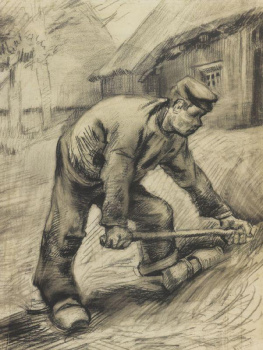Steven Pressfield - Gates of Fire: An Epic Novel of the Battle of Thermopylae
Here you can read online Steven Pressfield - Gates of Fire: An Epic Novel of the Battle of Thermopylae full text of the book (entire story) in english for free. Download pdf and epub, get meaning, cover and reviews about this ebook. year: 2005, publisher: Bantam Books, genre: Non-fiction. Description of the work, (preface) as well as reviews are available. Best literature library LitArk.com created for fans of good reading and offers a wide selection of genres:
Romance novel
Science fiction
Adventure
Detective
Science
History
Home and family
Prose
Art
Politics
Computer
Non-fiction
Religion
Business
Children
Humor
Choose a favorite category and find really read worthwhile books. Enjoy immersion in the world of imagination, feel the emotions of the characters or learn something new for yourself, make an fascinating discovery.

- Book:Gates of Fire: An Epic Novel of the Battle of Thermopylae
- Author:
- Publisher:Bantam Books
- Genre:
- Year:2005
- Rating:5 / 5
- Favourites:Add to favourites
- Your mark:
- 100
- 1
- 2
- 3
- 4
- 5
Gates of Fire: An Epic Novel of the Battle of Thermopylae: summary, description and annotation
We offer to read an annotation, description, summary or preface (depends on what the author of the book "Gates of Fire: An Epic Novel of the Battle of Thermopylae" wrote himself). If you haven't found the necessary information about the book — write in the comments, we will try to find it.
Gates of Fire: An Epic Novel of the Battle of Thermopylae — read online for free the complete book (whole text) full work
Below is the text of the book, divided by pages. System saving the place of the last page read, allows you to conveniently read the book "Gates of Fire: An Epic Novel of the Battle of Thermopylae" online for free, without having to search again every time where you left off. Put a bookmark, and you can go to the page where you finished reading at any time.
Font size:
Interval:
Bookmark:

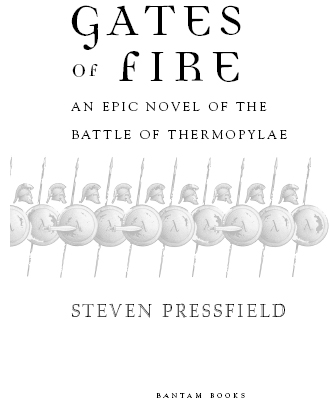
CONTENTS
FOR MY MOTHER AND FATHER
Although extraordinary valor was displayed by the entire corps of Spartans and Thespaians, yet bravest of all was declared the Spartan Dienekes. It is said that on the eve of battle, he was told by a native of Trachis that the Persian archers were so numerous that, when they fired their volleys, the mass of arrows blocked out the sun. Dienekes, however, quite undaunted by this prospect, remarked with a laugh, Good. Then well have our battle in the shade.
HERODOTUS, THE HISTORIES
The fox knows many tricks;
the hedgehog one good one.
ARCHILOCHUS
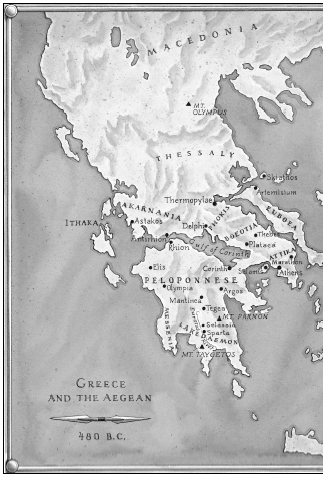
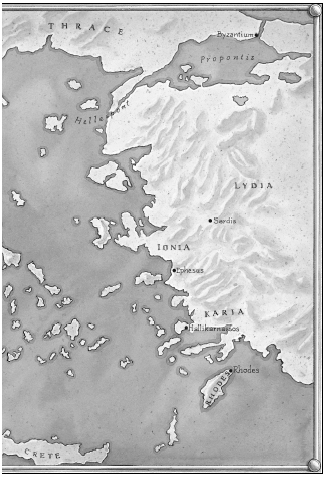
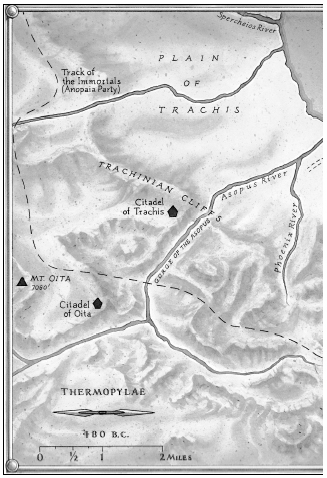
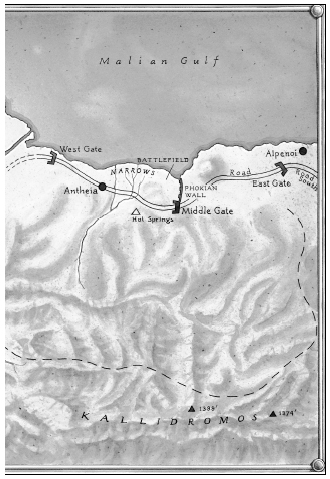
HISTORICAL NOTE
In 480 B.C. the forces of the Persian Empire under King Xerxes, numbering according to Herodotus two million men, bridged the Hellespont and marched in their myriads to invade and enslave Greece.
In a desperate delaying action, a picked force of three hundred Spartans was dispatched to the pass of Thermopylae, where the confines between mountains and sea were so narrow that the Persian multitudes and their cavalry would be at least partially neutralized. Here, it was hoped, an elite force willing to sacrifice their lives could keep back, at least for a few days, the invading millions.
Three hundred Spartans and their allies held off the invaders for seven days, until, their weapons smashed and broken from the slaughter, they fought with bare hands and teeth (as recorded by Herodotus) before being at last overwhelmed.
The Spartans and their Thespaian allies died to the last man, but the standard of valor they set by their sacrifice inspired the Greeks to rally and, in that fall and spring, defeat the Persians at Salamis and Plataea and preserve the beginnings of Western democracy and freedom from perishing in the cradle.
Two memorials remain today at Thermopylae. Upon the modern one, called the Leonidas monument in honor of the Spartan king who fell there, is engraved his response to Xerxes demand that the Spartans lay down their arms. Leonidas reply was two words, Molon labe. Come and get them.
The second monument, the ancient one, is an unadorned stone engraved with the words of the poet Simonides. Its verses comprise perhaps the most famous of all warrior epitaphs:
Go tell the Spartans, stranger passing by,
that here obedient to their laws we lie.
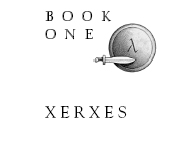
BY ORDER OF HIS MAJESTY, Xerxes son of Darius, Great King of Persia and Media, King of Kings, King of the Lands; Master of Libya, Egypt, Arabia, Ethiopia, Babylonia, Chaldea, Phoenicia, Elam, Syria, Assyria and the nations of Palestine; Ruler of Ionia, Lydia, Phrygia, Armenia, Cilicia, Cappadocia, Thrace, Macedonia and the trans-Caucasus, Cyprus, Rhodes, Samos, Chios, Lesbos and the islands of the Aegean; Sovereign Lord of Parthia, Bactria, Caspia, Sousiana, Paphlagonia and India; Lord of all men from the rising to the setting sun, His Most Holy, Reverend and Exalted, Invincible, Incorruptible, Blessed of God Ahura Mazda and Omnipotent among Mortals. Thus decreeth His Magnificence, as recorded by Gobartes the son of Artabazos, His historian:
That, following the glorious victory of His Majestys forces over the arrayed Peloponnesian foe, Spartans and allies, at the pass of Thermopylae, having extinguished the enemy to the last man and erected trophies to this valorous conquest, yet was His Majesty in His God-inspired wisdom desirous of further intelligence, both of certain infantry tactics employed by the enemy which proved of some effect against His Majestys troops, and of the type of foemen these were who, though unbound by liege law or servitude, facing insuperable odds and certain death, yet chose to remain at their stations, and perished therein to the final man.
His Majestys regret having been expressed at the dearth of knowledge and insight upon these subjects, then did intercede God Ahura Mazda on His Majestys behalf. A survivor of the Hellenes (as the Greeks call themselves) was discovered, grievously wounded and in a state of extremis, beneath the wheels of a battle waggon, being unseen theretofore due to the presence of numerous corpses of men, horses and beasts of transport being heaped upon the site. His Majestys surgeons being summoned and charged under pain of death to spare no measure to preserve the captives life, God yet granted His Majestys desire. The Greek survived the night and themorning following. Within ten days the man had recovered speech and mental faculty and, though yet confined to a litter and under direct care of the Royal Surgeon, was able not only at last to speak but to express his fervent desire to do so.
Several unorthodox aspects of the captives armor and raiment were noted by the detaining officers. Beneath the mans battle helmet was found not the traditional felt cawl of the Spartan hoplite, but the dogskin cap associated with the race of helots, the Lakedaemonian slave class, serfs of the land. In contrast inexplicable to His Majestys officers, the prisoners shield and armor were of the finest bronze, etched with rare Hibernian cobalt, while his helmet bore the transverse crest of a full Spartiate, an officer.
In preliminary interviews, the mans manner of speech proved to be a compound of the loftiest philosophical and literary language, indicative of a deep familiarity with the epics of the Hellenes, intermingled with the coarsest and most crude gutter argot, much of which was uninterpretable even to His Majestys most knowledgeable translators. The Greek, however, willingly agreed to translate these himself, which he did, utilizing scraps of profane Aramaic and Persian which he claimed to have acquired during certain sea travels beyond Hellas. I, His Majestys historian, seeking to preserve His Majestys ears from the foul and often execrable language employed by the captive, sought to excise the offensive material before His Majesty was forced to endure hearing it. Yet did His Majesty in His God-inspired wisdom instruct His servant so to translate the mans speech as to render it in whatever tongue and idiom necessary to duplicate the precise effect in Greek. This have I attempted to do. I pray that His Majesty recall the charge He imparted and hold His servant blameless for those portions of the following transcription which will and must offend any civilized hearer.
Inscribed and submitted this sixteenth day of Ululu, Fifth Year of His Majestys Accession.
ONE
T hird day of Tashritu, Fifth Year of His Majestys Accession, south of the Lokrian border, the Army of the Empire having continued its advance unopposed into central Greece, establishing an encampment opposite the eastern fall of Mount Parnassus, the sum of whose watercourses, as numerous others before upon the march from Asia, failed and was drunk dry by the troops and horses.
Font size:
Interval:
Bookmark:
Similar books «Gates of Fire: An Epic Novel of the Battle of Thermopylae»
Look at similar books to Gates of Fire: An Epic Novel of the Battle of Thermopylae. We have selected literature similar in name and meaning in the hope of providing readers with more options to find new, interesting, not yet read works.
Discussion, reviews of the book Gates of Fire: An Epic Novel of the Battle of Thermopylae and just readers' own opinions. Leave your comments, write what you think about the work, its meaning or the main characters. Specify what exactly you liked and what you didn't like, and why you think so.









